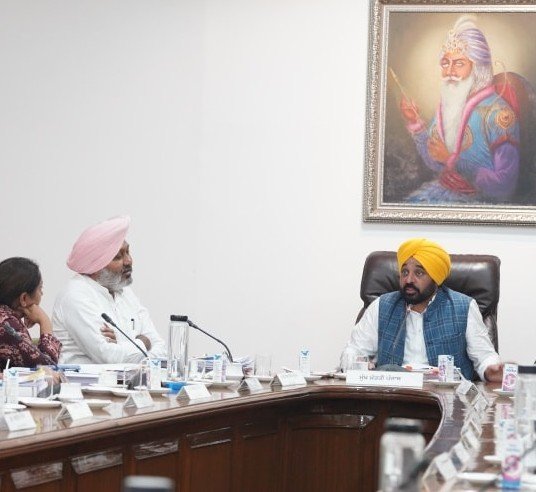Punjab’s bold legal assault on sacrilege marks a turning point in its efforts to safeguard religious harmony. On July 9, 2025, the Mann-led Aam Aadmi Party government unveiled a sweeping plan for a new anti‑sacrilege bill—set to be tabled during a special July 10–11 assembly session—that proposes the harshest possible punishments, including life imprisonment or even the death penalty, for anyone found guilty of desecrating holy scriptures such as the Guru Granth Sahib, Bhagavad Gita, Quran, or Bible. This is not Punjab’s first attempt to legislate against sacrilege. It is, in fact, the third successive administration to do so. Earlier efforts in 2016 by the SAD‑BJP government and in 2018 by the Congress-led regime faltered when the Centre refused to grant presidential assent, citing constitutional concerns over secularism and the need for equal treatment of all faiths. What sets this proposal apart is that it would be anchored in the framework of the new Bharatiya Nyaya Sanhita (BNS)—a revised criminal code replacing the older Indian Penal Code—designed to bypass the legal and procedural hurdles that scuttled past attempts. Chief Minister Bhagwant Mann, whose government convened a high‑level meeting with representatives of the Sarb Dharam Beadbi Rokko Kanoon Morcha, stressed that this legislation must be both “water‑tight” and uncompromising in scope.The intent is clear: to fill legal lacunae that have in the past allowed perpetrators to escape meaningful consequences. CM Mann said, “People who commit sacrilege often walk away with minor penalties. We are bringing a law that ensures the severest punishment—including the death penalty—if someone intentionally insults our sacred scriptures”. Meanwhile, Finance Minister Harpal Singh Cheema reassured the public that legal experts—including the Advocate General and Legal Remembrancer—are being consulted to ensure the bill is constitutionally sound from the outset. In India, where “law and order” is a concurrent list subject, Punjab asserts its right to legislate boldly when the Centre fails to act. Officials argue that the BNS empowers states to introduce tougher punishments tailored to local sensitivities, including for sacred texts—a domain not explicitly covered by central law. But this decisive stance is not without controversy. Legal commentators caution that words like “sacrilege” remain vague and open to misuse, giving rise to potential violations of free speech or politically motivated prosecutions. Observers also question whether capital punishment is legally permissible in this context and whether the Supreme Court might eventually challenge its proportionality. Arguably, using the death penalty in sacrilege cases risks international scrutiny, especially in a secular democracy.The proposed legislation also contains novel elements aimed at deterrence and collective responsibility. It provides for life imprisonment if sacrilegious acts lead to riots or deaths, and even proposes that guardians of juveniles or persons with disabilities be held accountable for their charges’ actions. That reflects Punjab’s longstanding fears of sacrilege triggering communal strife—as seen in the infamous 2015 Bargari‑Behbal Kalan incidents and the tragic aftermath including police firing. Those episodes left deep scars on the Sikh psyche and continue to resonate in the state’s politics and public discourse. Public sentiment on the issue remains intense. Gurjeet Singh Khalsa, who has protested atop a BSNL tower in Samana since October 2024, continues to demand the death sentence for sacrilege convicts; his hunger strike has become a potent symbol, amplifying political urgency. Meanwhile, opposition parties and activists—particularly from the SAD and BJP—warn that such a sweeping law could be exploited to silence critics and settle political scores, undermining civil liberties .As Punjab readies its special assembly session, the world watches closely. The outcome will likely set a precedent—not just for the state, but also for other Indian regions facing similar religious tensions—on how far regional governments can go in legislating at the intersection of faith, law, and order.
This is a web‑generated news report.
